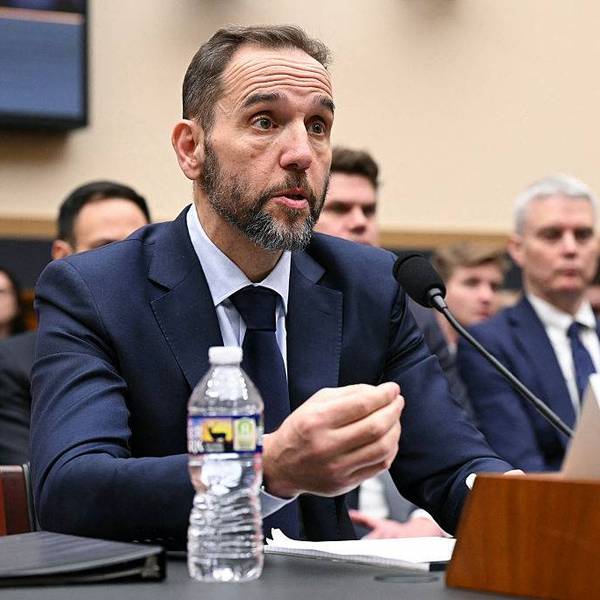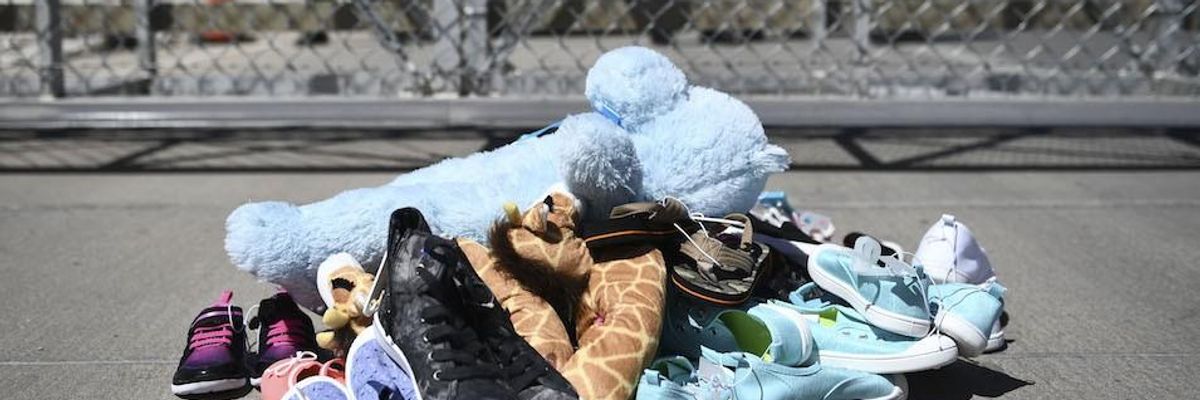As political observers focused on a pair of congressional hearings Wednesday featuring former special counsel Robert Mueller recounting the contents of his report on Russian interference in the 2016 election, another hearing involving the victims of the Trump administration's immigration policies was going on down the hall.
The House Appropriations Committee's Labor, Health and Human Services, Education, and Related Agencies Subcommittee hearing, which didn't earn the kind of media coverage Mueller's hearing did, painted a dire picture of conditions for migrant children separated from their families and placed under the care of the Office of Refugee Resettlement (ORR) and Health and Human Services (HHS) in facilities like Florida's Homestead Temporary Shelter for Unaccompanied Children.
"A posted bulletin board had timelines for when staff would notify ICE about kids approaching their 18th birthdays," said Rep. Debbie Wasserman Schultz (D-Fla.). "These children had to be transferred out of Homestead and ORR care and we were told these young adults are arrested by ICE, handcuffed, and sent to an adult ICE prison."
"Children often dread this date," Wasserman Schultz said. "Many become suicidal as the date nears."
Wasserman Schultz, a critic of Homestead, described her concerns over Homestead, including that the company running the facility--Comprehensive Health Services, a subsidiary of Caliburn, where, Common Dreams reported in May, former Chief of Staff to President Donald Trump John Kelly sits on the board--appeared disinterested in education programs and proper care for the children housed there. The congresswoman, who visited the facility earlier in July, also said the shelters were not prepared to stand up to major storms.
"We're in the middle of hurricane season, and many of the shelters for children are tents," said Wasserman Schultz.
The hearing also featured testimony from Amnesty International's executive director Margaret Huang and Krish O'Mara Vignarajah, the president and CEO of Lutheran Immigration and Refugee Service.
Huang, in her prepared remarks, railed against the Trump administration's treatment of immigrants and use of family separation as a deterrence tactic.
"Though domestic and international law require family unity to be preserved wherever possible, the government has adopted practices that do exactly the opposite," said Huang, "jeopardizing family unity and needlessly prolonging child detention by separating caregivers from children and implementing an information-sharing agreement between DHS and ORR that places potential sponsors at risk of deportation."
"These practices are not only antithetical to the principle of the best interests of the child," Huang added, "they have also proliferated the use of 'temporary emergency' facilities when the only 'emergency' is a crisis of the administration's making."
In her comments (pdf) to the subcommittee, Vignarajah said that children experience mental and emotional strain from family separation.
"The harmful chaos created during the zero-tolerance policy that led to separating thousands of children from their families without any plan for reunification is anathema to this nation's values and an abdication of modern-day child welfare protections," said Vignarajah.
The problem continues, she added, despite government assurances.
"Although the zero-tolerance policy was officially rescinded on June 20, 2018, we are deeply troubled by the fact that we continue to encounter such cases," Vignarajah said.
Watch the full hearing:




